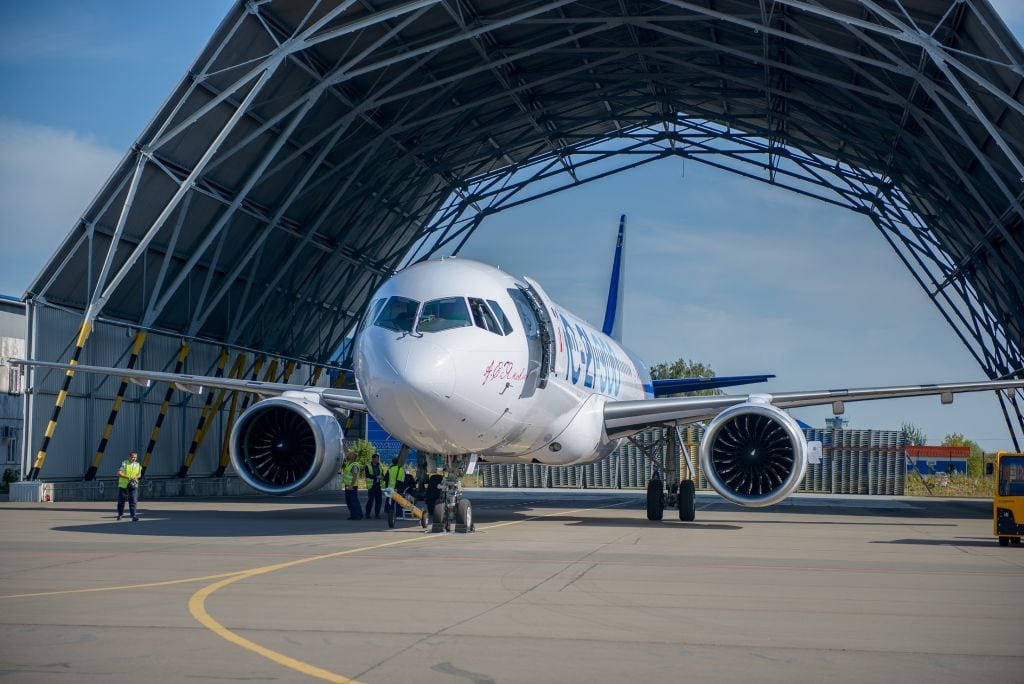
MC-21-300. Photo, courtesy of Irkut Corp.
A flight test engineer and two test pilots from EASA have joined the flight test campaign for the MC-21-300 aircraft, providing a path toward achieving European certification for Russia’s next-generation passenger jet.
State-owned Russian aircraft manufacturer Irkut Corp. first applied for EASA type certification on the MC-21-300 in August 2016. The company is building the MC-21 family of short- and medium-haul commercial airliners as a replacement for the Tu-154B/M, which ended production in 2013.
MC-21-300 is the largest of two planned variants of the MC-21 family, capable of carrying up to 163 passengers. It has a range of 3,456 nautical miles.
The EASA engineer and test pilots obtained permission to fly the MC-21-300’s certification campaign from Russian civil aviation officials after performing ascribed procedures. These included the completion of take-off, approach and landing using both landing systems and visual approaches on MC-21 simulators.
“Thanks their vast experience, our European colleagues mastered control of MC-21-300 within a short period,” said Oleg Kononenko, a test pilot with Irkut Corp.’s Yakovlev Design Bureau.
EASA’s team has also completed familiarization flights with the MC-21-300, including landing, approach and go-around procedures along with the simulation of a single-engine failure.
The Russian-built aircraft features subsystems and components from a number of western suppliers. Honeywell Aerospace provides the airplane information management system and inertial reference systems. The Arizona-based company also provides the aircraft’s traffic alert and collision avoidance system and its cabin pressure control systems.
Curtiss Wright also provides an integrated flight-data acquisition unit for the MC-21. Rockwell Collins and Thales are also developing avionics for the airliner in partnership with UAC-Integration Center.
But the Russian government is attempting to expand domestically produced avionics, after announcing a $1.5 billion investment in the development of its avionics manufacturing industry through 2025.
Irkut began flight testing the MC-21 in 2017, expanding the program to two prototypes in 2018. As of July 2018, Irkut has amassed 175 firm orders and 150 commitments for the MC-21 family.
Russia hopes to earn EASA type certification for the MC-21 in 2019.